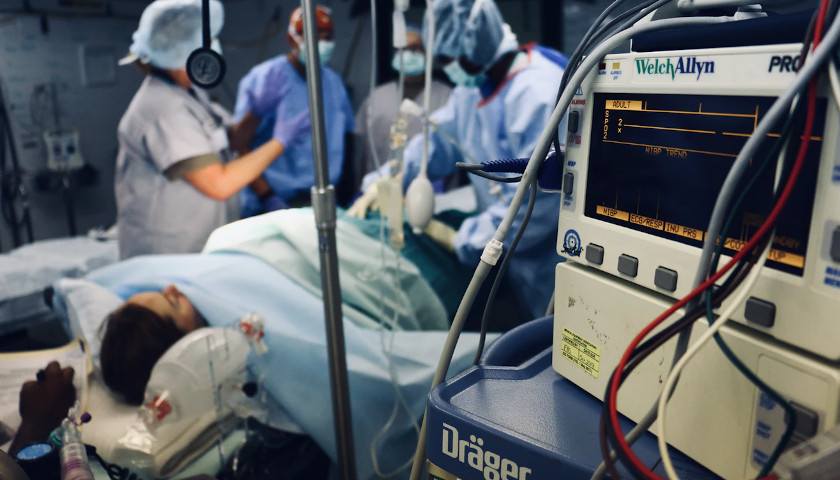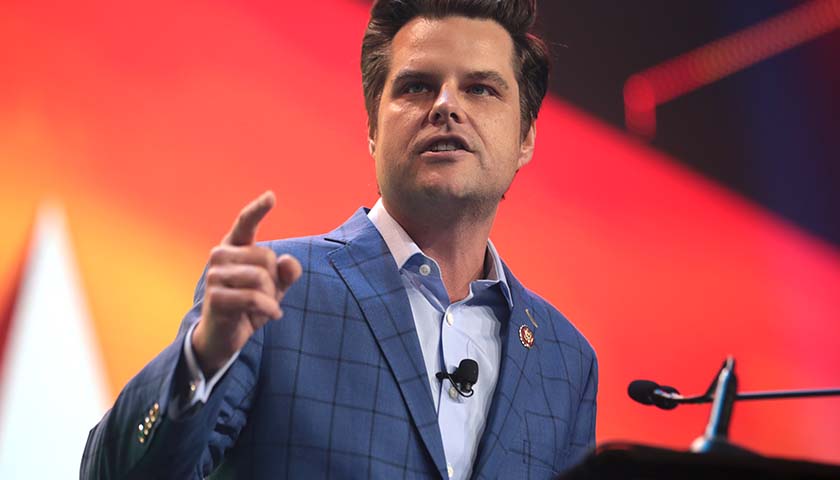by Chris White
An anti-malarial drug that President Donald Trump hyped as a potential therapy for the coronavirus helped some patients survive the disease while in the hospital, according to research published Wednesday.
Some of those who received hydroxychloroquine before acute symptoms began were much less likely to die from the virus, according to researchers at Henry Ford Health System in Michigan. Their findings come after other studies determined that the experimental drug provided little or no benefit to people struggling with the coronavirus, or COVID-19.
 “Overall crude mortality rates were 18.1% in the entire cohort, 13.5% in the hydroxychloroquine alone group, 20.1% among those receiving hydroxychloroquine plus azithromycin, 22.4% among the azithromycin alone group, and 26.4% for neither drug,” researchers at Henry Ford wrote in a report published in the International Journal of Infectious Diseases.
“Overall crude mortality rates were 18.1% in the entire cohort, 13.5% in the hydroxychloroquine alone group, 20.1% among those receiving hydroxychloroquine plus azithromycin, 22.4% among the azithromycin alone group, and 26.4% for neither drug,” researchers at Henry Ford wrote in a report published in the International Journal of Infectious Diseases.
Other researchers are skeptical about the Henry Ford Health System’s findings. The use of the steroid dexamethasone might account for the better survival of some patients, especially those that received the steroid alongside the drug, one researcher argued in the same journal.
The study tested 2,541 hospitalized patients and found that 26% of people not given hydroxychloroquine died, compared to 13% of patients who received the drug. Dr. Marcus Zervos, division head of infection disease for Henry Ford Health System, and his team looked at everyone treated in the hospital system since March.
“Our results do differ from some other studies,” Zervos said during a news conference, CNN reported.
“What we think was important in ours … is that patients were treated early. For hydroxychloroquine to have a benefit, it needs to begin before the patients begin to suffer some of the severe immune reactions that patients can have with Covid,” Zervos added.
Dr. Steven Kalkanis, CEO of Henry Ford Medical Group, suggested during the press conference that the drug, in the right settings, “could be a lifesaver for patients.”
Some researchers criticized Kalkanis’ group’s methods.
“As the Henry Ford Health System became more experienced in treating patients with COVID-19, survival may have improved, regardless of the use of specific therapies,” Dr. Todd Lee of the Royal Victoria Hospital in Montreal, Canada, wrote in a commentary in the International Journal of Infectious Diseases.
Lee and his colleagues noted that the team did not randomly treat patients.
“Finally, concomitant steroid use in patients receiving hydroxychloroquine was more than double the non-treated group. This is relevant considering the recent RECOVERY trial that showed a mortality benefit with dexamethasone,” Lee noted. Dexamethasone is a steroid that can reduce inflammation.
One observational study published in June in the The New England Journal of Medicine determined that hydroxychloroquine “was not associated with either a greatly lowered or an increased risk” of death. “Randomized, controlled trials of hydroxychloroquine in patients with COVID-19 are needed,” the author’s said.
One study that warned about the anti-malarial drug has since been retracted.
Researchers with medical journal Lancet said in a press statement in June that they “can no longer vouch for the veracity of the primary data sources,” and “due to this unfortunate development, the authors request that the paper be retracted.”
Lancet’s May study claimed there was no benefit from using hydroxychloroquine to treat patients with COVID-19, and that the drug “was associated with an increased hazard for clinically significant occurrence of ventricular arrhythmias and increased risk of in-hospital death with COVID-19.”
The drug became a hot-button topic after Trump sang its praises, telling reporters in April that hydroxychloroquine is showing “tremendous promise” in helping treat the novel virus. The media mocked him for expressing optimism for an untested drug.
COVID-19 originated in China before spreading to the United States, where it has reportedly killed more than 129,000 people.
– – –
Chris White is a reporter for the Daily Caller News Foundation.




